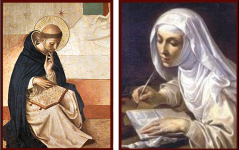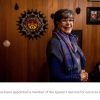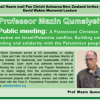What are the employment issues of the young people in your community?
Tu Kahikatea invites us to stand with and speak for our young people
Those who are familiar with Tu Kahikatea Standing Tall (the framework for Catholic Youth Ministry in Aotearoa New Zealand) will know that one of the eight components of ministry to young people is Advocacy. We are called upon to examine how the decisions that we and others make are impacting on the poor, the vulnerable and those at risk. With respect to youth ministry we are asked to stand with and speak on behalf of our young people and their families on public issues such as education, housing and employment. We are also asked to empower our young people by giving them a voice and calling them to responsible participation in the life, mission and work of our Catholic faith community.
The precariousness of employment for young people
Earlier this year I attended the AUT Symposium on Precarious Work. The Symposium comprised a range of speakers from the UK, Canada, Australia and NZ speaking about the global challenge of precarious work. This includes those who don’t have work, those who need full-time work but can only find part-time employment, those having to work multiple jobs to make ends meet, those being paid insufficient to actually make ends meet, those who have no job security, those who are being exploited with a loss of employment rights such as no maternity leave or having to work seven days a week without a day off … the list goes on! Talk to a young person and they will tell you their struggles.
Often our young people can’t find suitable part-time jobs while they are studying and when they do the pay rate is so low it is well below the living wage. Some receive their work hours at 4pm the day before via text message which makes it impossible to plan ahead. When students complete tertiary study they find that it is impossible to gain employment that utilises the knowledge gained during the study and in the meantime they have clocked up a substantial student loan that needs to be repaid. Some come from families that have struggled financially for years, others are working to support younger siblings complete study.
Guy Standing from the UK started the Symposium off by speaking of those who are vulnerable, often graduates saddled with debt knowing the chance of gaining a reasonable job is very low. I was sitting with a student who graduated last year with good marks, an all-round person who most employers would be proud to have as an employee. She has just managed to secure a part-time role. She is grateful for this, as it beats the casual work she chased last year. How many people do you know in your family, parish or community who have similar stories?
The goal is the living wage for all
The argument is for all people to receive a living wage. This doesn’t mean a life filled with luxuries … it allows for just one modest dinner out per month. It does mean adequate housing and healthcare, food on the table for all members of the family and education for our school children. A group of economists and social researchers produced a report launched which recommends that for most parts of NZ this would mean workers receiving $18.40 per hour. They estimated that a living wage for Auckland would need to be $24.11 to reflect the higher cost of living in NZ’s largest city.
The concept of a living wage was developed from Catholic social teaching on just wages, and many church groups – including Caritas Aotearoa New Zealand and the Auckland Catholic Diocese Commission for Justice and Peace – have endorsed the living wage statement. However, Caritas notes that there is still room for discussion and debate about what a living wage rate should be in different circumstances. The important thing is to realise that New Zealand’s current minimum wage is not enough to keep people out of poverty – especially in Auckland. Employers, workers, unions, community groups, politicians and wider society need to look at ways to improve the incomes of the lowest paid workers – who are frequently also the youngest workers.
I was staggered by the implications for families and individuals who don’t receive a living wage. One story particularly touched me…
A mother who goes without food herself so that her school-age children have a proper meal. This has a negative effect on the child she gives birth to a few months later who has a low birth weight and is born with an attention deficit disorder due to insufficient nourishment in the womb. This child requires medical attention for many years. Due to ongoing health issues the child finds study hard and slips behind at school.
Eventually they start skipping school and fall in with a group of friends who …yes you know where this story is heading! All because a mother doesn’t have sufficient food both for herself and her children.
Deborah Littman from Metro Vancouver Alliance shared her experience of working on the London Living Wage Campaign. The campaign was the result of a retreat where families were concerned that people working full-time could no longer provide for their families on what they earned. Instead they too were queuing for food parcels and seeking assistance from the community. This grass roots response grew with people and organisations in many different sectors connecting in agreement that the under-lying problem was low-pay. Individuals, organisations and communities united and together they lobbied for change. I know from my contacts that many families in Auckland are also unable to provide for their family with what they earn.
The 2013 Social Justice Week theme is Walk Alongside: Meaningful work for the young worker. The material focuses on meaningful work for young people in an age of unemployment or uncertain work. Almost 45 per cent of those currently seeking work in New Zealand are aged 15-24. We encourage you and your community to support and advocate for your young people. Find out more by downloading the resources from the Caritas Aotearoa Website: http://www.caritas.org.nz/resources/social-justice-week.
This article was contributed by Teresa McNamara, a lay member of the Dominican Aotearoa NZ Family and Diocesan Youth Ministry Co-Ordinator for the Auckland Catholic Diocese.







